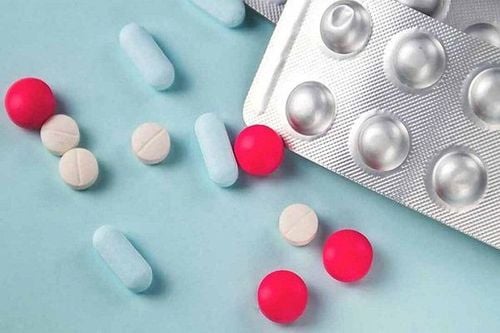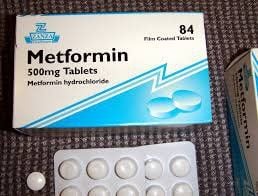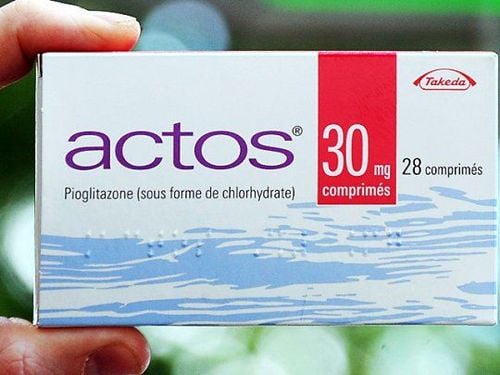This is an automatically translated article.
Posted by Doctor CKII Nguyen Xuan Ninh - Emergency Department - Vinmec Central Park International Hospital
People with diabetes will have a higher risk of body infections than the general population, in order to prevent the disease from worsening, recognizing the signs of infection due to diabetes plays an important role. very important.
1. Are people with diabetes at high risk of infection?
People with diabetes are definitely at a higher risk of infection than people without diabetes. It can be caused by:
High blood sugar: Too much blood sugar can cause the immune system to work less efficiently than it should. Nerve damage: Over time, diabetes can cause nerve damage. This can lead to problems such as nerve damage that can prevent the person from being able to feel pain in the leg. So if the person gets a cut in the foot or steps on a sharp object, the person may not know it. If the wound is not treated early, it can become an open wound and become infected. Blood vessel problems: Over time, diabetes can damage blood vessels. As a result, the blood is also not able to perfuse as well as it should to help heal the infection. If you have diabetes, tell your doctor or nurse right away if you think you have an infection.

Nguy cơ nhiễm trùng cao ở người có bệnh lý tiểu đường
2. What infections do people with diabetes often get?
People with diabetes often get:
Skin infections Vaginal yeast infections (in women) Bladder or kidney infections Foot infections Yeast infections in the mouth (called "thrush") Lung infections (pneumonia) Infection after surgery, around the cut from surgery
3. When should a diabetic patient contact a doctor?
People with diabetes need to contact their doctor or nurse as soon as they have:
● Fever, aches or chills
● Increased redness, swelling, warmth or pain around the cut , scrapes, or sores
Pus coming from a cut, scrape, or sore
Frequent urination, pain when urinating, or cloudy or foul-smelling urine
● Itching or vaginal discharge
● White patches in your mouth or on your tongue

Người bệnh tiểu đường cần liên hệ bác sĩ khi xuất hiện triệu chứng sốt
4. What can be done to prevent infection?
People with diabetes can do a few things to help limit the risk of infection by controlling blood sugar. Control blood sugar to help reduce nerve and blood vessel damage caused by diabetes.
Another important thing you can do is take care of your feet. This can help prevent foot infections. Protect and care for your feet by:
Wear shoes or sandals at all times Cut your toenails carefully, cut them straight and file, do not cut cuticles or blisters Wash your feet with warm water and soap every day and wipe them clean dry afterwards, apply moisturizer or lotion on the feet Check both feet every day; Check your feet for cuts, blisters, swelling, or redness. Be sure to examine the entire foot, including the area between the toes. If you can't see well or if you have trouble seeing the soles of your feet, ask a family member or friend to check your feet. Wear socks that aren't too tight and change them every day. Wear shoes that don't fit well. too tight Check the inside of your shoes before you put them on. Make sure there's nothing sharp inside. Have your doctor check your feet at every visit

Chăm sóc đôi bàn chân đúng cách sẽ giúp người bệnh ngăn ngừa nhiễm trùng chân
Also, to help prevent infections in other parts of your body, you can:
Take care of your skin by keeping it clean and dry, wearing gloves when you use harsh chemicals or products Others may be harmful to the skin. If you get a cut or scrape, wash it off immediately with soap and water. If it doesn't heal or gets worse, see your doctor or nurse Take care of your gums and teeth with brushing twice a day, flossing every day, and seeing your dentist for regular checkups Healthy diet include protein, vegetables and fruits, drink plenty of water Get your pneumonia vaccine, flu vaccine (yearly) and any other vaccines your doctor recommends Wash your hands often, especially if you are around sick people. Avoid holding urine for long periods Quit smoking, smoking makes blood vessel problems worse If you have an infection and your doctor prescribes antibiotics, be sure to take them exactly as prescribed . If you don't take antibiotics, your infection may get worse.
At Vinmec International General Hospital, we always deploy a screening package for diabetes and dyslipidemia to help detect pre-diabetes early, accurately classify diabetes type, develop a nutritional regimen, monitoring to minimize the risk and complications caused by diabetes.
To register for examination and treatment at Vinmec International General Hospital, you can contact Vinmec Health System nationwide, or register online HERE
SEE MORE
When to test money diabetes? Indicators to consider during diabetes treatment How does eating affect your blood sugar?














